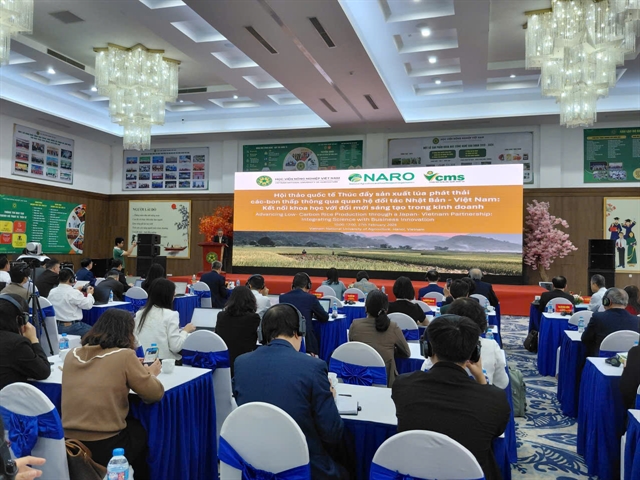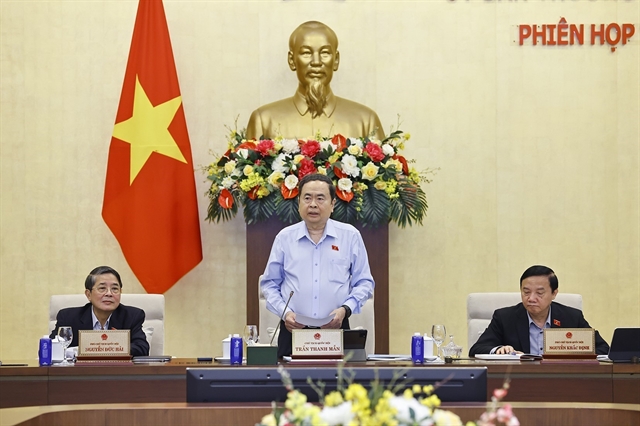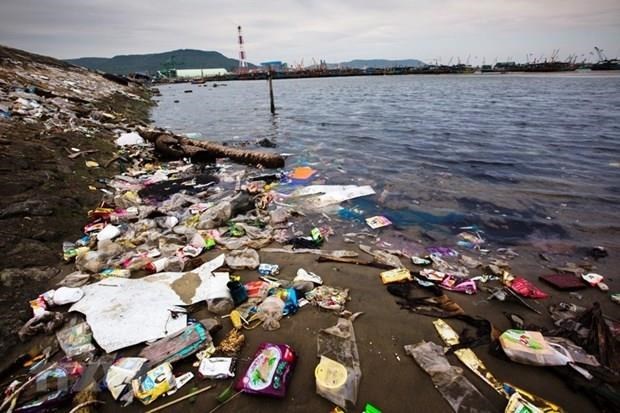 Environment
Environment


|
| The volume of plastic waste released by human each year, including 13 million tonnes dumped into seas, is enough to cover the earth’s surface four times. — VNA/VNS Photo |
HÀ NỘI — There must be close ties between scientific researching and policy making to tackle plastic pollution in Việt Nam, environmental campaigners have said.
A workshop held recently by the International Union for Conservation of Nature (IUCN) in collaboration with the Ministry of Natural Resources and Environment (MoNRE) raised the issue of plastic waste pollution as a serious threat to the global environment and development.
Participants at the event, part of the IUCN’s MarPlastics project, included policymakers from ministries, representatives from Vietnamese and international environmental organisations, scientists and environmental campaigners.
They discussed policy and knowledge loopholes, sought effective solutions and proposed policies to minimise marine plastic pollution.
A report from the IUCN said along with solutions on policy, technology, finance and public awareness improvement, it is necessary to conduct further research on the impacts of plastic waste pollution on the economy, environment and society.
“It is important to have clear messages basing on scientific evidences to convey the results of such researches to State agencies, business enterprises as well as the community so that they can support the building and implementation of policies and laws on environmental protection,” the report said.
Director of the MoNRE’s Legal Affairs Department Phan Tuấn Hùng said plastic waste is a global environmental problem. Each year, the volume of plastic waste released by humans, including 13 million tonnes dumped at sea, is enough to cover Earth’s surface four times.
Reports from international environmental organisations revealed Việt Nam throws away about 1.8 million tonnes of plastic every year, standing 17th among 109 countries in terms of plastic waste volume released. Of that amount, some 730,000 tonnes is released to the oceans, accounting for 6 per cent of the world’s plastic volume dumped at sea. That has made the country the fourth biggest polluter of ocean plastic waste.
Hùng noted it is very easy to see such key words like “plastic waste” and “fight plastic waste” in the media at present, showing public awareness of plastic waste in Việt Nam has been improved.
Many anti-plastic movements and initiatives have been launched. Several supermarkets have replaced plastic bags with environmentally friendly materials, while some restaurants and coffee shops have eliminated single-use plastic products.
However, the official said, there remains much that needs to be done in terms of plastic waste management policies. Plastic is currently managed like other types of waste, and there aren't specific regulations on plastic waste management, except for some on taxes for plastic bags.
”Existing policies and laws on plastic waste management have yet to be on par with its impacts on the environment and human health, as well as public attention to this issue. Therefore, it is necessary to step up making policies and laws in this field,” according to Hùng.
He said these policies and laws should take into account the life cycle of plastic, from design, production, packaging and consumption to emission, collection, treatment and recycling.
Aside from economic tools like taxes and fees on plastic products, it is also a need to set technical standards, support the recycling of environmentally friendly plastic products and promote producers and importers’ sense of responsibility, he added. — VNS




